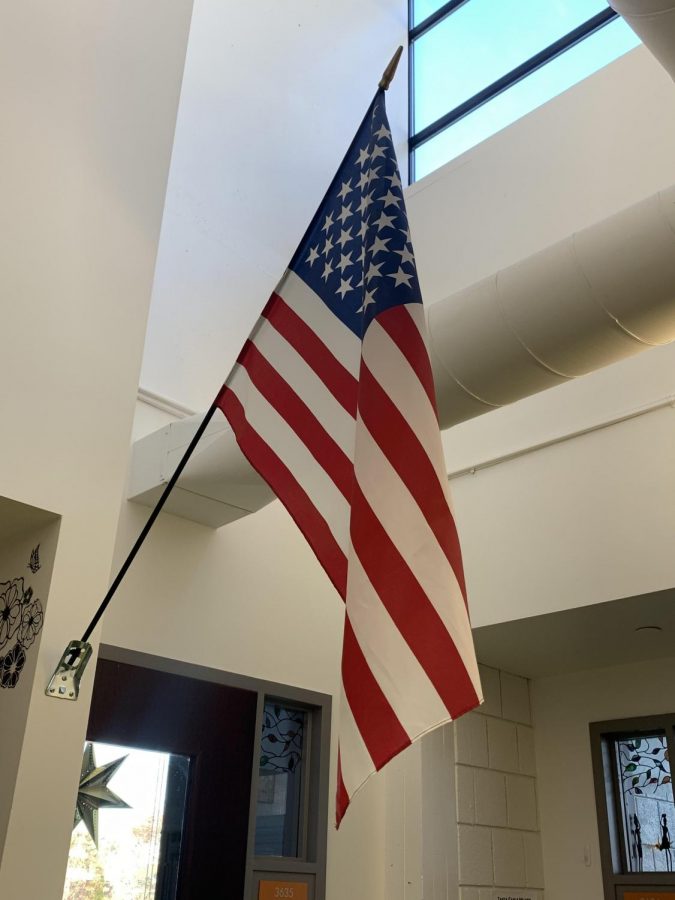The Pledge of Allegiance: A Mode of Disillusion and Subservience
The Pledge of Allegiance has no place in schools.
December 2, 2021
For the first time since CRLS went remote in March 2020, the Pledge of Allegiance began to ring through school classrooms once again on October 15th, 2021. Massachusetts law mandates daily recitation of the pledge, but what is branded as an obligatory, usually forgotten part of the school day is a nationalist chant. Despite the legal requirement, the pledge must be questioned and challenged.
The word “allegiance” itself is defined by Oxford Languages as loyalty or commitment of a subordinate to a superior, the superior in this case being the United States. Enduring dedication to the US implies that citizens cannot question or oppose the government.
By pledging allegiance, the right of protest—prescribed in the first amendment—is threatened. To deny the right to protest and change government is to deny the people a voice; that doesn’t sound much like a democracy. While the pledge may seem like a traditional saying due to its normalization, its goal, one of subservience and mindless faithfulness, has become wrongfully institutionalized. By forcing the pledge onto children while they are young and impressionable, the pledge attempts to indoctrinate incoming generations with obedience to the current system.
The image that the US government is benevolent enough to exist unopposed attempts to hide the cruelty it is responsible for. Similarly to the opening line of the Declaration of Independence—which reads “… that all men are created equal, that they are endowed by their Creator with certain unalienable Rights, that among these are Life, Liberty and the pursuit of Happiness,” a statement that only applied to white, land-owning men—the pledge’s line, “liberty and justice for all,” does not reflect the country’s past or present, regardless of how much we would like to believe it does.
Latin American migrants fleeing persecution continue to be violently denied entry and deported, Black Americans are systematically murdered by the police, and the US Department of Housing and Urban Development reported that 580,466 Americans are experiencing homelessness this year; the luxuries of liberty and justice are only awarded to the rich and privileged. Reciting the pledge praises the ruling class that created and runs the American system, actively excluding the proletariat from the definition of “for all.”
Additionally, the pledge was originally written by Christian minister Francis Bellamy in the 19th century, when this country looked very different from today. America theoretically prides itself on the separation of church and state, yet we are mandated to listen to “One nation, under God,” falsely illustrating a largely non-Christian population as a fundamentally Christian society. Even though the religious affiliation of the “God” mentioned in the pledge isn’t explicit, the Christian origin proves the intended specification, as with other mentions of God in the government.At CRLS especially, a public school with students who practice a vast range of religions, reciting the pledge to the Christian God is not representative.
The Pledge of Allegiance conditions Americans into nationalist conformity, simultaneously lying about the free and fair utopia it advertises. Although the Constitution encourages us to understand, criticize, and improve our country, rather than blindly follow the will of the government, the required recitation of the pledge makes it clear that this nation does not instill the people with the power they are promised.
This piece also appears in our November 2021 print edition.











